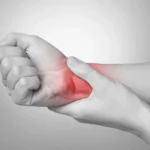
8 Essential Questions to Ask Before Starting Laser Therapy
Peripheral neuropathy can cause debilitating symptoms like numbness, tingling, and burning sensations in the hands, wrists, feet, and ankles. Many people turn to laser therapy as a non-invasive option for relief. However, before you start, you should know what to expect. Asking the right questions will help you make an informed decision and ensure you know what the treatment will involve.
Here are some key questions to ask before beginning laser therapy for neuropathy.
1. How Does Laser Therapy Help Neuropathy?
It’s important that you understand how the treatment works. Low-level laser therapy (LLLT), also known as cold laser therapy, uses specific wavelengths of light to stimulate cellular repair, improve circulation, and reduce inflammation. Ask your provider to explain how these effects may benefit your specific type of neuropathy.
2. Is Laser Therapy Right for My Type of Neuropathy?
Neuropathy can have many causes, such as:
- Diabetes
- Bacterial and viral infections
- Chemotherapy
- Physical injuries
- Lack of vitamins
- Genetics
- Alcohol abuse.
The effectiveness of laser therapy may vary depending on the cause and severity of your nerve damage. Discuss your medical history and ask your provider if they believe laser therapy can help your situation.
3. What Results Can I Realistically Expect?
While some patients notice improvement after a few sessions, others may require several weeks of consistent treatment to see results. Ask your provider about typical outcomes, and be wary of anyone who promises a “quick fix.” Understanding what’s realistic helps manage expectations and measure progress.
4. How Many Treatments Will I Need?
To receive the best results, you often need to invest in a series of sessions rather than a one-time procedure. Ask how many treatments are typically recommended for your condition, how often they’re scheduled, and whether maintenance sessions will be needed for long-term relief. Generally, treatment lasts a few weeks, and each session lasts about 30 minutes.
5. Are There Any Risks or Side Effects?
Laser therapy is generally safe and non-invasive, but it’s still worth asking about possible side effects or contraindications (specific conditions or factors that make it unsafe or inadvisable to administer). Most patients experience no pain or downtime, but individuals with certain conditions or medications may need extra precautions.
6. Is Laser Therapy Safe?
Laser therapy is very safe, with no risk of serious complications. If you’re nervous about this treatment, don’t be afraid to ask what to expect during treatment. Knowing what is to come will lessen your anxiety. In general, most patients feel a mild warmth or tingling, while others don’t feel anything.
7. Who Will Be Performing the Treatment?
Always confirm that your treatment will be administered by a licensed and trained professional. Experience does matter, as an experienced provider will know how to adjust the laser’s intensity and duration based on your condition and response. If needed to make you feel comfortable, ask about their training and certification in laser therapy, experience treating neuropathy, and success rates or patient outcomes
8. Can This Be Combined with Other Treatments?
Laser therapy can be part of a comprehensive neuropathy care plan that includes nutrition support, physical therapy, or other chiropractic or medical treatments. Ask your provider whether they recommend combining therapies for the best results and if it’s safe.
Additionally, ask whether you should make certain lifestyle changes, such as managing blood sugar, participating in regular exercise, or eating a more balanced diet, in order to enhance results and support long-term nerve health.
9. What Is the Cost, and Is It Covered by Insurance?
Since laser therapy is often considered an alternative or emerging treatment, not all insurance plans cover it. Be sure to ask about pricing and payment options before starting to avoid any surprises later on.
10. How Will Progress Be Measured?
Effective treatment should include tracking improvements. Ask how your provider will monitor your symptoms, adjust the treatment plan, and determine when you can finish therapy. Consider keeping a symptom diary to track changes between sessions. Documented progress ensures the therapy is effective and worth continuing.
Laser Therapy: A Safe Solution for Neuropathy
Laser therapy can help you take a positive step toward managing nerve pain and improve your quality of life. However, the key to relief lies in being well-informed. By asking the right questions, such as how the therapy works, its suitability for your condition, expected results, and potential risks, you can make an education decision, set realistic expectations, and ensure that laser therapy becomes a valuable part of your neuropathy management plan.





